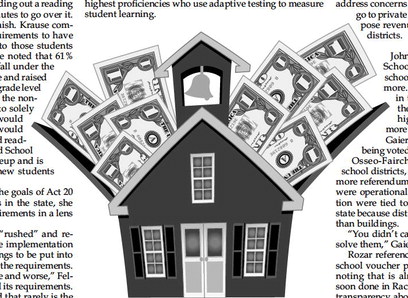Educators, legislators talk policy at legislative forum


by Brian Wilson, The Star News, Medford Building bridges of understanding between policy makers in the state legislature and the concerns of local school districts i...


by Brian Wilson, The Star News, Medford Building bridges of understanding between policy makers in the state legislature and the concerns of local school districts i...